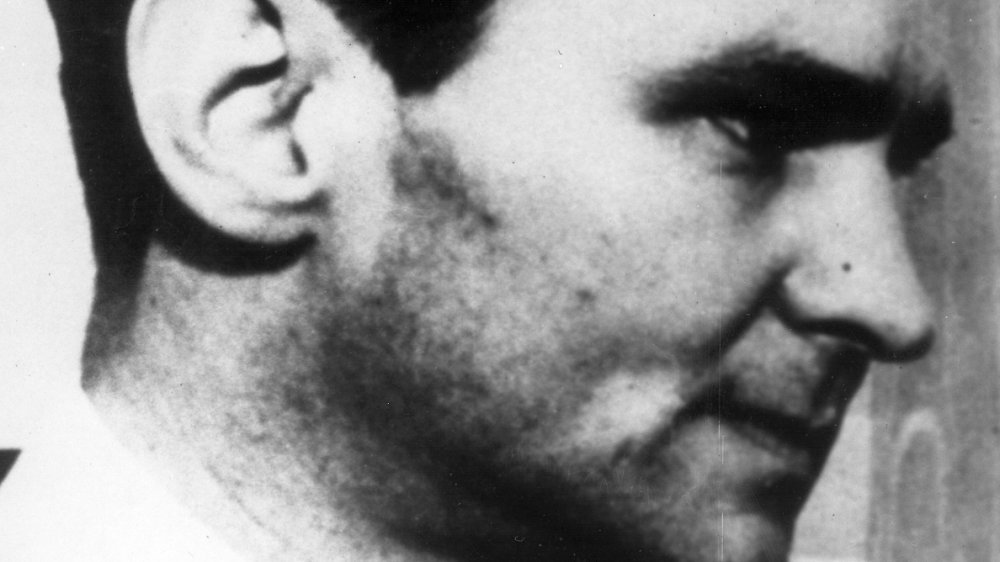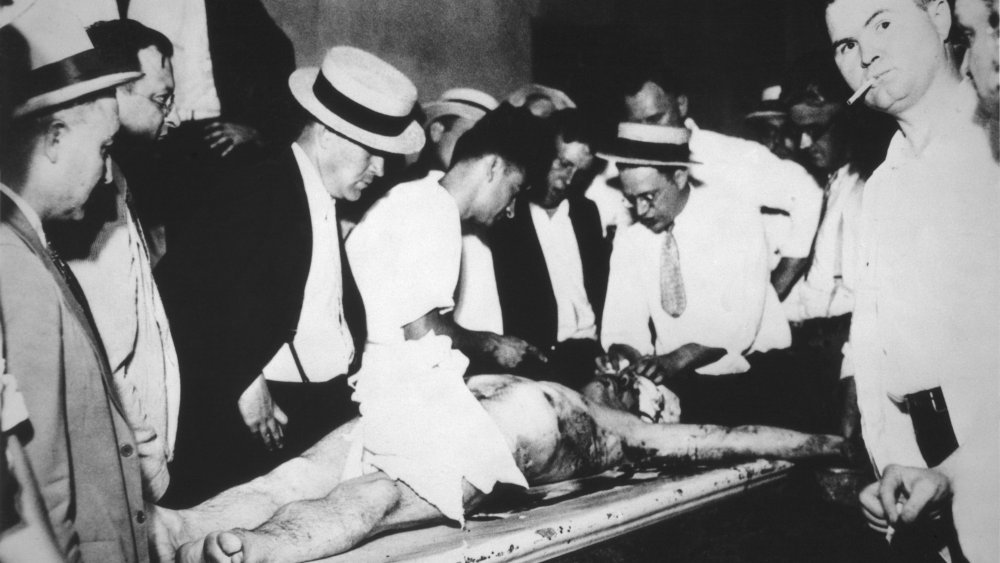Melvin Purvis: The Incredible Life Of The Man Who Brought Down John Dillinger
Like a lot of the early FBI agents, he didn't start out to be a cop. Melvin Purvis, only 5'4", was born in South Carolina and earned a degree from the University of South Carolina School of Law, according to PBS' American Experience. After working for a while at a law firm, he decided to become a diplomat with the State Department, but they weren't hiring. The Justice Department was. Despite no law enforcement experience, Purvis excelled as a field agent for J. Edgar Hoover, heading up offices in Birmingham, Oklahoma City, and Cincinnati before moving to Chicago in 1932. It was the heyday of organized crime and celebrity gangsters with various levels of achievement and notoriety — Bonnie and Clyde, Baby Face Nelson, Al Capone, and John Dillinger. Dillinger had escaped custody yet again and driven a stolen vehicle across state lines, which qualified him for special attention by federal authorities. Hoover put Purvis on the case.
They got John Dillinger. They got him good
After a failed attempt at an arrest at a Dillinger hideout in Wisconsin — two civilians were wounded and one killed by mistake; tear gas fired by the agents blew back on them, sickening them, and Dillinger escaped — Purvis received word that the gangster was going to go to the movies at the Biograph Theater in Chicago. Agents and Chicago police surrounded the theater. As Dillinger exited, Purvis lit a cigar, the signal to the other law enforcement. "Stick 'em up, Johnny, we have you surrounded," he called out. Dillinger pulled a gun and made a run for it but was met with gunfire. Purvis himself never fired a shot. He generously gave credit for the success to everyone involved, likening it to a military operation. Purvis was still labeled "The Man Who Got Dillinger" by the press, and in time, his remarkable record as an agent drew the jealousy of Hoover, who claimed he didn't want individual agents to be glorified — it was always a team effort. The fact is that Hoover resented anyone's fame eclipsing his own, leading him to turn down The Untouchable, Eliot Ness himself, for a job. Purvis led manhunts for Baby Face Nelson and Pretty Boy Floyd before resigning from the agency in 1935. He served in Army Intelligence during World War II, rising to the rank of colonel, and helped compile evidence against Nazi leadership for the Nuremberg Trials.
He died of a gunshot wound in 1960. The FBI claimed it was self-inflicted, but there's evidence he really might have been trying to clean the weapon and accidentally shot himself.

